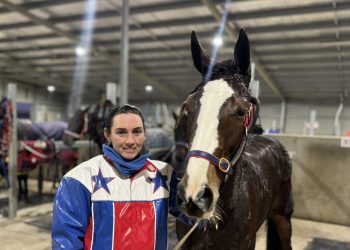When Flori”duh’s” Governor used his mighty pen in causing the death of Pompano Park, the effects to many were disastrous—the number affected in the many thousands…maybe 10…maybe 15…maybe more!
Not only were harness racing horsemen and women badly wounded or, in some cases, figuratively killed, surrounding businesses felt the bullets, too.
To this day, many have not been able to recover from the stab wound of that pen and the bloody signature on the bottom of that “de-coupling” order.
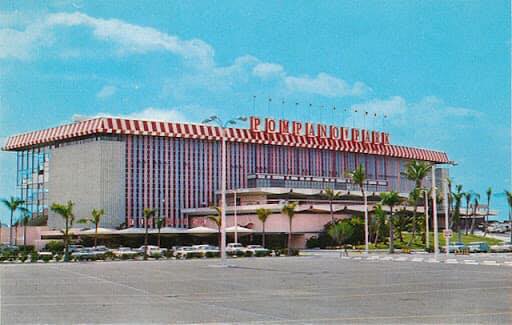
Yes, with one stroke of a legislative pen, the Van Lennep legacy was completely eradicated…and the family that made Pompano Beach the “Winter Capital of Harness Racing” for 70 years —that includes the training center across the street known as Racetrack Road—and the city it became was buried forever.
Tragic, sad, devastating, crushing, distressing, catastrophic…
Nobody knows or realizes how YOU feel when you go through something like that.
People say, “I know how you must feel.”
But they really don’t!
I heard from Denise Chase the other day.
Who, you ask?
Denise Chase…
About 40 years ago, I wrote a story about her folks—Red and Helga.
Who, you ask?
Red and Helga Pasciuto.
Robert “Red” Pasciuto and his wife, “Helga” had a stable at Freehold Raceway in the late 1970’s through the 1980’s.
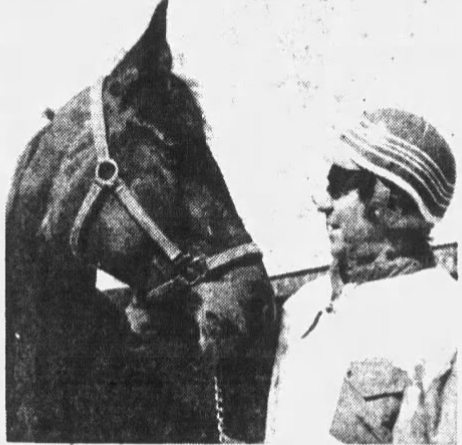
They didn’t have a large stable, no, but to me, heroism comes in many forms and, in my eyes, they fit the bill.
Character, kindness, and dedication to their horses, which they said were “family members,” are traits of heroism and they had all of that…and more.
Denise told me about the impending closure of Freehold Raceway, an institution that put the great borough of Freehold, New Jersey “on the map” around 170 years ago.
It, too, is being discarded to the ages at the end of this year, the decision of its parents—Penn National and Greenwood—just tossing it away like a problem child that’s unwanted.
First, it was the closure of the sports book RIGHT AT THE BEGINNING OF ITS MOST LUCRATIVE TIME, THE NFL SEASON, with the final nail for racing to be put in their coffin at the end of the year.
Freehold was the literal hub of the industry in the Garden State.
Not far away, there were/are training facilities down Route 33, like Gaitway, and, stretching down Route 34, grand farms and residences occupied by the greatest names in our sport—from Abbatiello to Weaver.
When a historical venue like Freehold Raceway is lost, so are the vocations of thousands of persons in and around the hub of a circle around the track.
It affects those selling pizzas at Federici’s, getting haircuts at Barney’s, having a brew at Moore’s Inn (now Moore’s Tavern and Sports Bar) and getting prescriptions filled at the corner pharmacies on Main and South Streets.
When a historical venue like Freehold Raceway is lost, it takes away from, as Denise Chase says, “a bustling…industry for breeding, training, racing, gambling and socializing.”
Freehold Raceway, quite possibly, dates back to the 1830’s. But it was in 1853 when the Monmouth County Agricultural Society was formed to hold a fair with harness racing (with a one-time payment of $10 permitting a person to become a life member).
Over the ensuing years from from 1854 to 1858, the Agricultural Society purchased 20 acres of land for $3,000 and, eventually, made improvements and built a half-mile track and grandstand.
One of the more historical events was when the trotter George M. Patchen, known as the “Pride of Monmouth County,” set the world record for trotting two miles under saddle at the age of 14—his time 4:56.
The Freehold Driving Club was formed in 1895. Fifty-two gentlemen leased the track for $174 a year and they were “off to the races!”
In 1909, when the Club became disbanded, the Freehold Driving Association was formed and the track rebuilt, as it was considered “lopsided.”
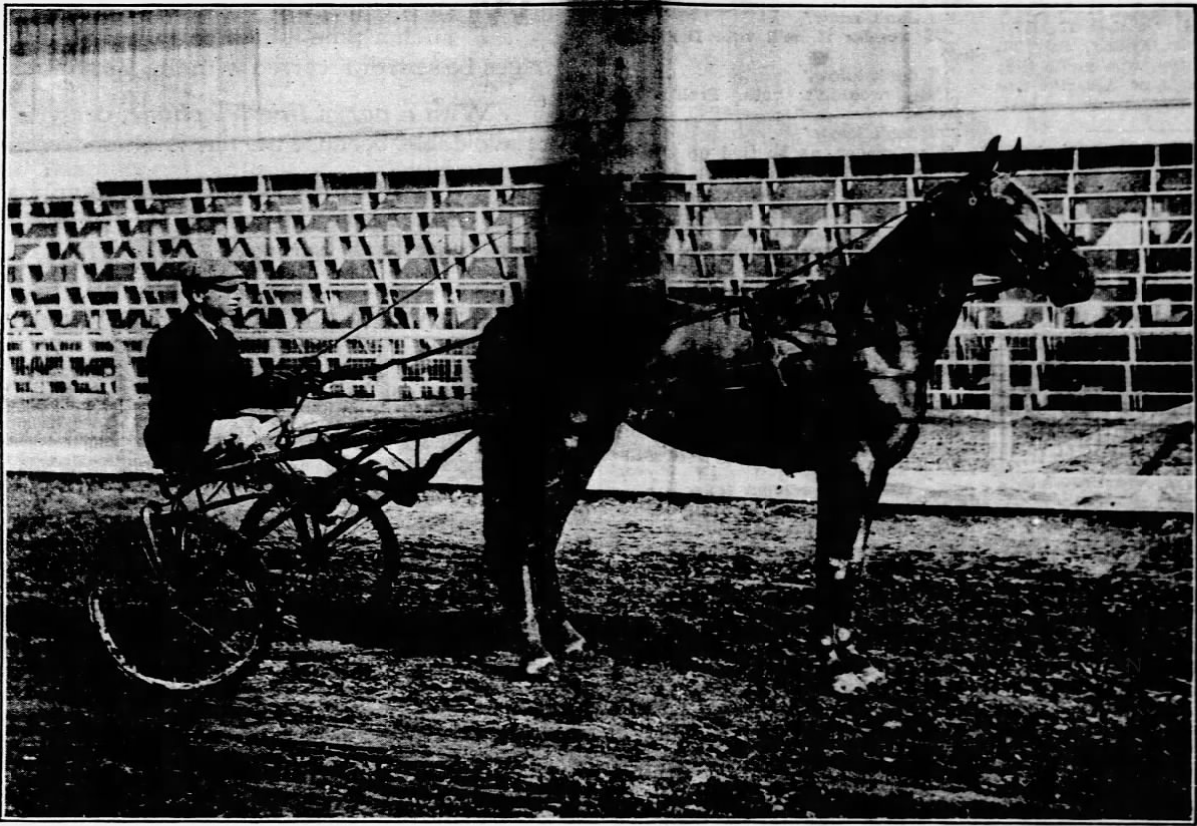
In 1921, interest had waned and, two years later, the track reopened with a new innovation—a meet with both harness racing and thoroughbred racing (there had been a ruling from the early 1900’s that racing was outlawed but the ruling never enforced).
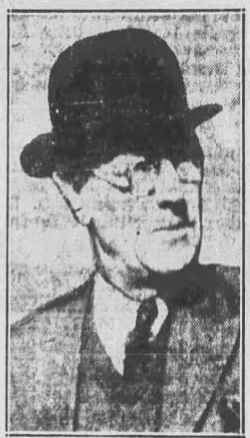
In 1936, sportsman Harry Gould purchased the track and made substantial repairs. The “new” Freehold Trotting Association re-opened on September 15, 1936.
But Gould was “against” gambling and, if there was to be gambling, he didn’t wish to own the venue and sold his shares to one Fred Fatzler for $85,000.
The result? Freehold became the first pari-mutuel track in New Jersey, featuring a 13-day meeting complete with betting machines and a tote board—the cost being $35,000.
Racing was interrupted during the war but resumed in July,1944 by the Freehold Trotting Association.
On September 12, 1946, Freehold started their 24 day meeting with a record crowd of 4,000 with wagering at $78,873 on 10 races. The handle for the 24 day meeting was $1,423,657.
In 1960, Fatzler sold the track for $5,000,000, and racing gained in popularity with the 1962 meeting creating handle of over $25,000,000—including an August 11 record of 13,206 betting $758,719.
Five years later, the track was sold to Gibraltar Pari-Mutuel of Canada for $8,000,000.
Up until that time, Freehold’s starting gate could accommodate only six horses across with two trailing in the second tier so, in 1967, the track was re-constructed to allow eight horses behind the gate.
In 1970, the grandstand was enclosed to allow year-round racing with stakes attracting many of the greatest horses in the sport including Su Mac Lad, Cardigan Bay, and Albatross, along with the greatest horsemen in the sport, such as Filion, Dancer, and Haughton, along others.
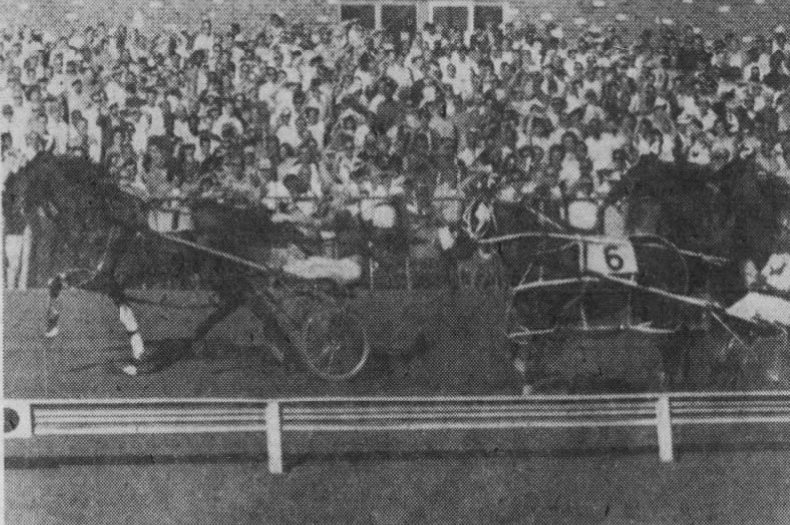
After a fire destroyed Freehold Raceway on May 4, 1984, simulcast racing resumed at the track in late July under the tents and concluded in late September.
The Wilmot Family bought the track on New Year’s Eve in 1984 and rebuilt the grandstand and dining room—costing $12,000,000—and had a grand re-opening on October 22, 1986.
In 1990, Ken Fischer purchased the track and, four years later, International Thoroughbred Partners announced it has exercised an option to buy the track for $23,000,000.
On January 29, 1999, Freehold Raceway was bought for $46,000,000 by Pennwood Racing…leading up to this very day…the day that “broke the heart of Denise Chase.”
“I can’t remember a time without Freehold,” she said. “Our first horses were Grateful Add and Merrily Anne.
“I remember being in a baby parade in Asbury Park and my mother, Helga, who was a skilled seamstress, made a replica of my dad’s racing silks and I sat in the bike behind the (live) racehorse with my dad at his head.
“The theme of the parade was ‘everybody loves a winner’ and, when we passed the Empress Hotel along the boardwalk, well, that was a motto that rings true to me in every facet life today.”
Denise has a million grand memories about the track and its many characters with Denise telling about some of her favorites…
“My parents were mentored by an old Italian horseman, Lou Sperendi, and, when I tell you my parents were novices when they started, there are no truer words…
“My dad was such a novice that, once, Lou told my dad to brush a horse’s teeth…and HE DID!”
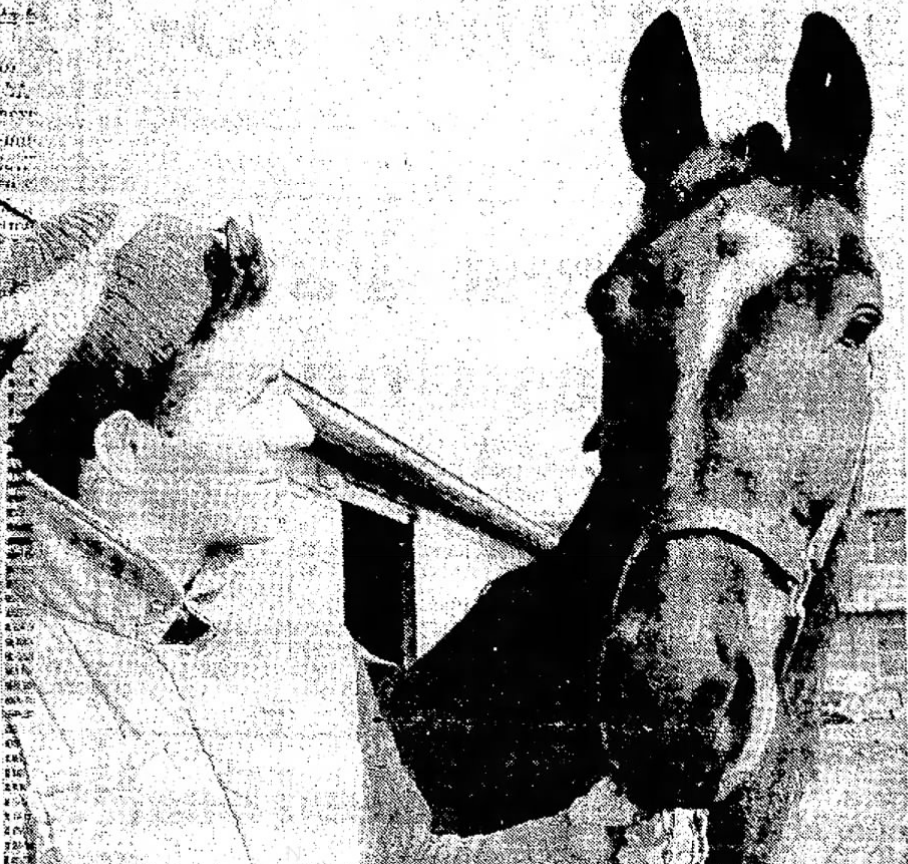
The folks also apprenticed with the great Herve Filion and we were at their place at Capitol Hill Farm frequently, which was immaculate.
“Freehold Raceway was always crowded with gamblers, socialites, and folks just enjoying the races.
“From Uncle Richie, the butcher, to the few degenerates in the stands to the cast of characters of every walk of life, Freehold was an exciting, wonderful experience every single day.
“When Niatross came to town for the James Dancer Memorial, it was electric…and I got to embrace him after his race…what a thrill…what a memory.
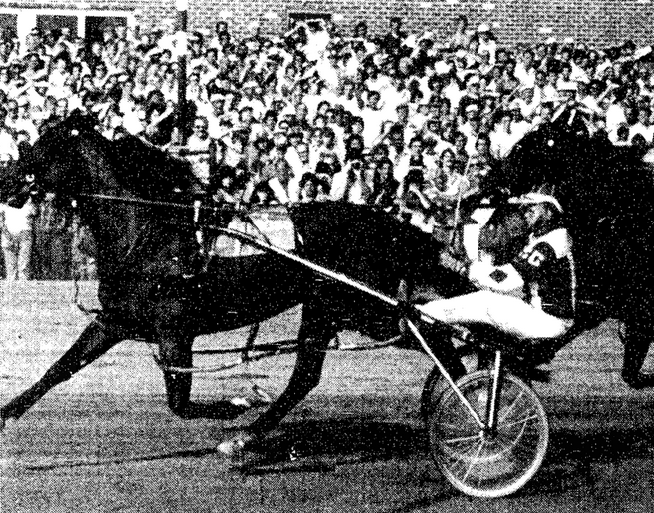
“My favorite groom was Ernie Major. We met in 1974 and he gave me a beautiful birthday card for my birthday…and $5.
“A $5 bill for a groom living in the track like me was really worth something. He became a wonderful friend—lifelong!
“It’s not an easy business—the horse business.
“There was many a time in winter when dad would come off the track with icicles hanging from his face from the cold…but that’s overshadowed by the love of the horse.”
Of course, there are superstitions involved with racing—just look at the significance of the horseshoe—and mom Helga had a few of them, Denise lamented.
“She loved the number five and Friday the 13th,” she said. “One day, she put a claim in on a horse along with a check and the horse suffered a serious injury during the race.
“But the claim didn’t go through because she forgot to sign the claim form… and it was on Friday the 13th.
“Like my mom said, “The horse business…one day you’re eating chicken, the next day feathers!”
Denise Chase isn’t the only one whose heart has been broken by the closure of Freehold Raceway. There are, literally, thousands more.
In a matter of just a few weeks, every member of the Freehold community—whether they be horsemen or women or surrounding business owners, will find the same fate as those in Florida two-and-a-half years ago.
Maybe some more safeguards should be put into place to prevent tragedies like this, but when the industry is facing hurricane head winds…it’s almost impossible!
by John Berry, for Harnesslink

 USA
USA Canada
Canada Australia
Australia New Zealand
New Zealand Europe
Europe UK / IRE
UK / IRE

